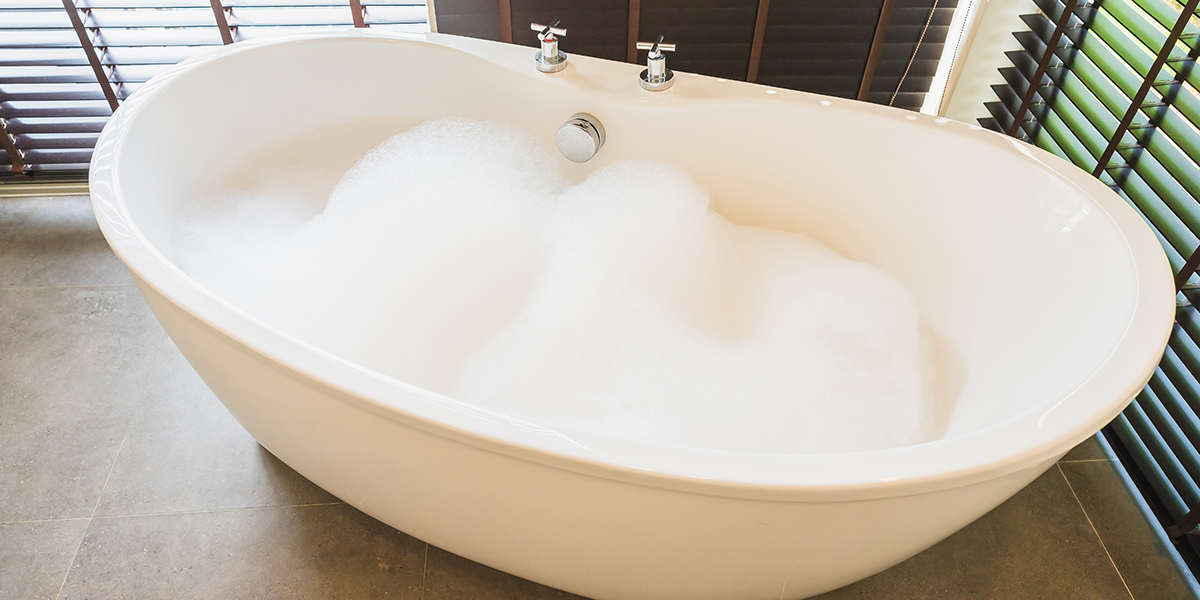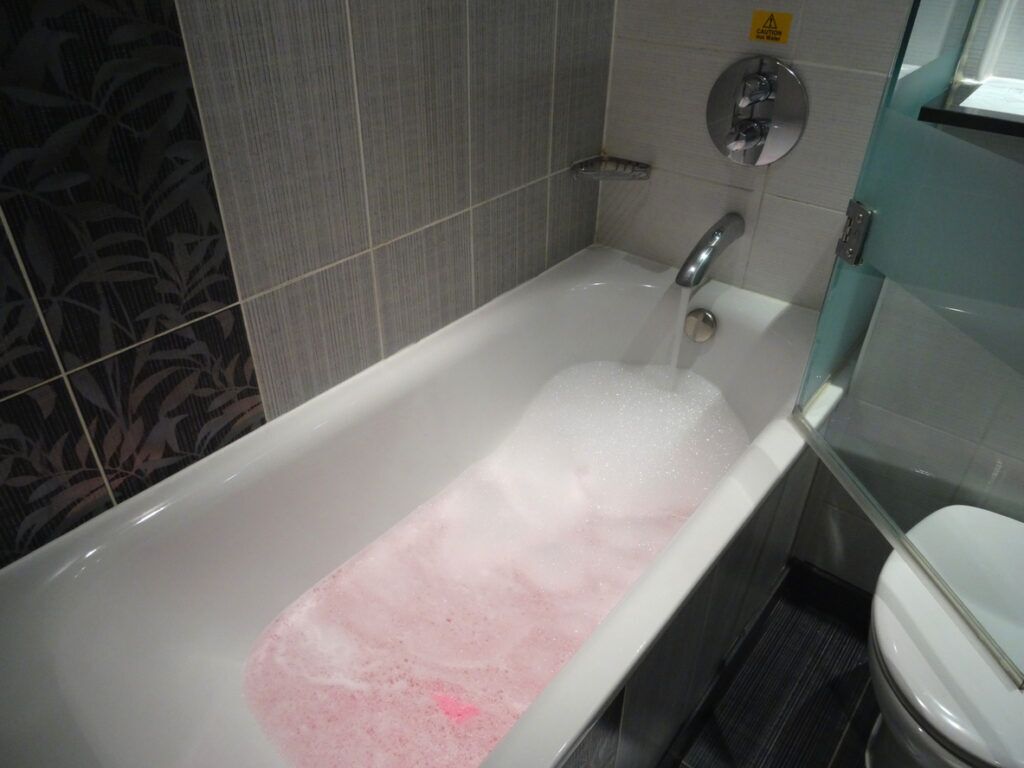The Definitive Answer: Sewage Coming Up Through the Bathtub
The Definitive Answer: Sewage Coming Up Through the Bathtub
Blog Article
We have found this article involving Why sewage is coming up through your bathtub directly below on the web and decided it made good sense to write about it with you over here.

Sewage backup in the bathtub can be a distressing and unsanitary trouble for any type of property owner. Not just is it bothersome, however it additionally positions severe health threats and shows underlying issues with the plumbing system. Comprehending why sewer is showing up via the bathtub is critical for taking appropriate action to deal with the problem efficiently.
Introduction to the Concern
Usual Factors for Sewer Backup
Obstructions in the Drain Line
One of the most usual causes of sewage backup is a blockage in the sewer line. This can occur due to the accumulation of particles, grease, or foreign objects in the pipes, preventing proper circulation and causing sewage to support right into your tub.
Tree Root Breach
Tree origins looking for dampness and nutrients can penetrate sewer lines through little cracks or joints. With time, these origins can grow and increase, creating considerable damage to the pipelines and leading to sewage back-up issues.
Comprehending the Trouble
When sewer starts backing up right into the bath tub, it's a clear sign of an issue with the water drainage system. The wastewater that should be moving away from your home is instead finding its way back into your home, which can cause significant damage and health hazards.
Prospective Causes
Several elements can contribute to sewer backup in the bathtub. From blockages in the sewer line to concerns with the plumbing framework, recognizing the origin is essential for locating a remedy.
Aging Framework
Older homes may have outdated plumbing systems that are extra at risk to corrosion, cracks, and wear and tear. As pipes age, they become more susceptible to leakages and blockages, boosting the chance of sewer backup cases.
Heavy Rainfall or Flooding
Throughout durations of heavy rainfall or flooding, the sewer system may come to be overwhelmed with excess water, causing backups and overflows. This can cause sewer supporting into bath tubs and other components inside the home.
Indicators of Sewage Back-up
Foul Odors
Unpleasant smells originating from drains or fixtures, specifically in the restroom, may show sewer backup concerns. These smells are commonly solid and persistent, signaling an issue that requires instant interest.
Slow Draining Fixtures
Bathtubs, sinks, and bathrooms that drain slowly or not at all could be experiencing sewage backup. If several components are influenced simultaneously, it's likely that the concern stems from a common point, such as the main sewage system line.
Gurgling Sounds
Strange gurgling or gurgling sounds coming from drains pipes when water is running in other places in your house are indicative of air entraped in the plumbing system. This air build-up can arise from sewage backup and ought to be checked out promptly.
Wellness Dangers Connected With Sewage Back-up
Contamination of Water Supply
Sewer backup can infect the water system in your house, posing a severe health threat to you and your household. Direct exposure to polluted water can cause gastrointestinal issues, skin infections, and other health problems.
Mold and mildew Development
Dampness from sewer back-up can produce excellent conditions for mold and mildew development in your house. Mold spores can intensify respiratory system problems and cause allergic reactions in delicate people, making timely clean-up necessary.
Spread of Illness
Sewage contains harmful microorganisms, viruses, and parasites that can create a series of illness, including liver disease, cholera, and gastroenteritis. Entering contact with sewage or contaminated surfaces places you in danger of infection.
Tidying up After Sewage Backup
Sanitation Procedures
Thoroughly sanitize and sterilize impacted areas after sewer back-up to eliminate dangerous microorganisms and stop mold and mildew growth. Use appropriate cleaning products and safety equipment to guarantee safe and reliable clean-up.
Reconstruction of Impacted Areas
Fix any type of damages to floor covering, walls, or fixtures triggered by sewage back-up. Depending on the extent of the damages, you might need to change carpets, drywall, or various other materials to restore your home to its pre-loss condition.
Immediate Actions to Take
Turning Off Supply Of Water
In the event of sewage backup, it's necessary to turn off the water to avoid further contamination and damages. Find the primary water shutoff valve in your home and closed it off up until the concern can be solved.
Getting In Touch With a Professional Plumber
Managing sewage backup is not a DIY task. Contact a qualified plumber with experience in managing sewage-related concerns to examine the situation and carry out essential repairs or clean-ups.
Staying Clear Of Contact with Contaminated Water
Up until the sewage back-up is settled, avoid contact with contaminated water to prevent the spread of bacteria and pathogens. Put on protective equipment if you need to remain in the damaged location and clean your hands extensively afterward.
Preventive Measures
Regular Maintenance of Sewer Lines
Set up normal examinations and upkeep of your drain lines to recognize and attend to prospective issues prior to they rise right into significant issues. This can include cleaning debris, evaluating for tree origin breach, and repairing any type of damaged pipelines.
Installing Backwater Shutoffs
Take into consideration setting up bayou valves in your plumbing system to stop sewage from receding into your home throughout durations of heavy rainfall or flooding. These shutoffs automatically close when water draws back up, protecting your residential property from contamination.
Appropriate Disposal of Household Waste
Stay clear of purging anything other than toilet paper and human waste down the commode to prevent clogs and blockages in the sewer line. Dispose of grease, oil, and various other family chemicals properly to minimize the threat of plumbing problems.
Why is There Sewage Coming Up Through the Bathtub
Sewage in your bathtub is a major problem that can make you want to abandon the bathroom for good. You don’t have to. However, it is important to identify the source of the issue and take the necessary steps to resolve it in order to avoid any health risks and property damage. In this article, we will discuss what could be causing sewage to back up through your bathtub so you can take action quickly and effectively.
The Main Reason For Sewage Backup in The Bathtub
All the sinks and toilets in your home connect to different pipes that lead to the main sewer line. The sewer line then connects to the municipal sewer system. This connection works seamlessly on a daily basis, but there can sometimes be a problem with the main sewer line.
The most common cause of sewage backup is a clogged or blocked main sewer line. The main sewer line can be clogged due to the accumulation of debris, tree roots or grease buildup, or other materials. Another possible cause is a collapsed pipe. When this happens, your toilets and sinks won’t be able to drain properly. This is when sewage starts backing up through the bathtub. If the problem has been occurring for some time now, it might be time to consult with a plumber as there may be more severe damage that needs fixing.
How Can You Tell if it’s Coming From Your Sewer Line?
If you’re experiencing a sewage backup in your bathtub, then you can use a few simple methods to determine if it is coming from the main sewer line. First, try to unclog the tub drain with a plunger or an auger and see if that helps. If not, then inspect all of the drains in your house and check if there is any blockage in them. If some of the other drains are not working fine, then it’s likely the problem is with your main sewer line.
Common Signs of a Clogged Main Sewer Line
If you suspect that your main sewer line is blocked, then there are a few common signs to look out for. Frequent clogs in your home are a sure sign of a clogged sewer line. You can also check for slow drainage from all the plumbing fixtures.
Slow Drains
If you notice that it takes longer for your sinks and toilets to drain, then this could be a sign of a clogged main sewer line.
Frequent Clogs
Another common sign is that your drains or toilets become clogged almost all of the time. If this happens, then it could be a sign that the main sewer line is blocked.
Water Backup
Do you notice water or sewage coming back up from any of the drains in your home? If your answer is yes, you may have a clogged main sewer line.
Sinkholes
If you’ve noticed sinkholes in your yard or overflowing sewage from the ground, you may be facing a blocked sewer line issue.
Your Shower or Sink Makes Gurgling Noises
Have you noticed gurgling noises coming from your sink or shower lately? These are typically signs of a blocked sewer line and should be checked out immediately.
How to Prevent a Main Sewer Line Clog
Once you’ve identified that your main sewer line is clogged, it’s important to take steps to prevent it from happening again. The best way to do this is to avoid putting any solid material that can clog the drain, such as grease and other debris. You should also be mindful of what you flush down your toilet. In addition, you should schedule regular maintenance for your main sewer line. This will help keep it clear and free from clogs or backups.
What Should You do if You Notice Sewage Backing up Through The Bathtub?
If you’ve noticed sewage backing up through the bathtub, then it is important to call a professional plumber immediately. A plumber can inspect the situation and determine what the cause is, such as a blocked main sewer line. They will also be able to advise you on how best to fix the issue. In some cases, a simple drain cleaning may be all that is needed.
However, if the blockage is severe, then your plumber may need to use more advanced methods to clear the blockage.
No matter what, it is important to always call a professional plumber if you experience any kind of sewage backup. They will be able to assess the situation and provide you with a solution that is best for your home.
https://baylorinc.com/blog/why-is-there-sewage-coming-up-through-the-bathtub/

I'm just very serious about What to Do if Sewage Starts Coming Up Through Your Bathtub and I'm hoping you liked the entire blog entry. Do you know about anybody else who is fascinated about What To Do If Sewage Starts Backing Up Into the Shower? Please feel free to promote it. Thank you for your time spent reading it.
Course Detail
Report this page